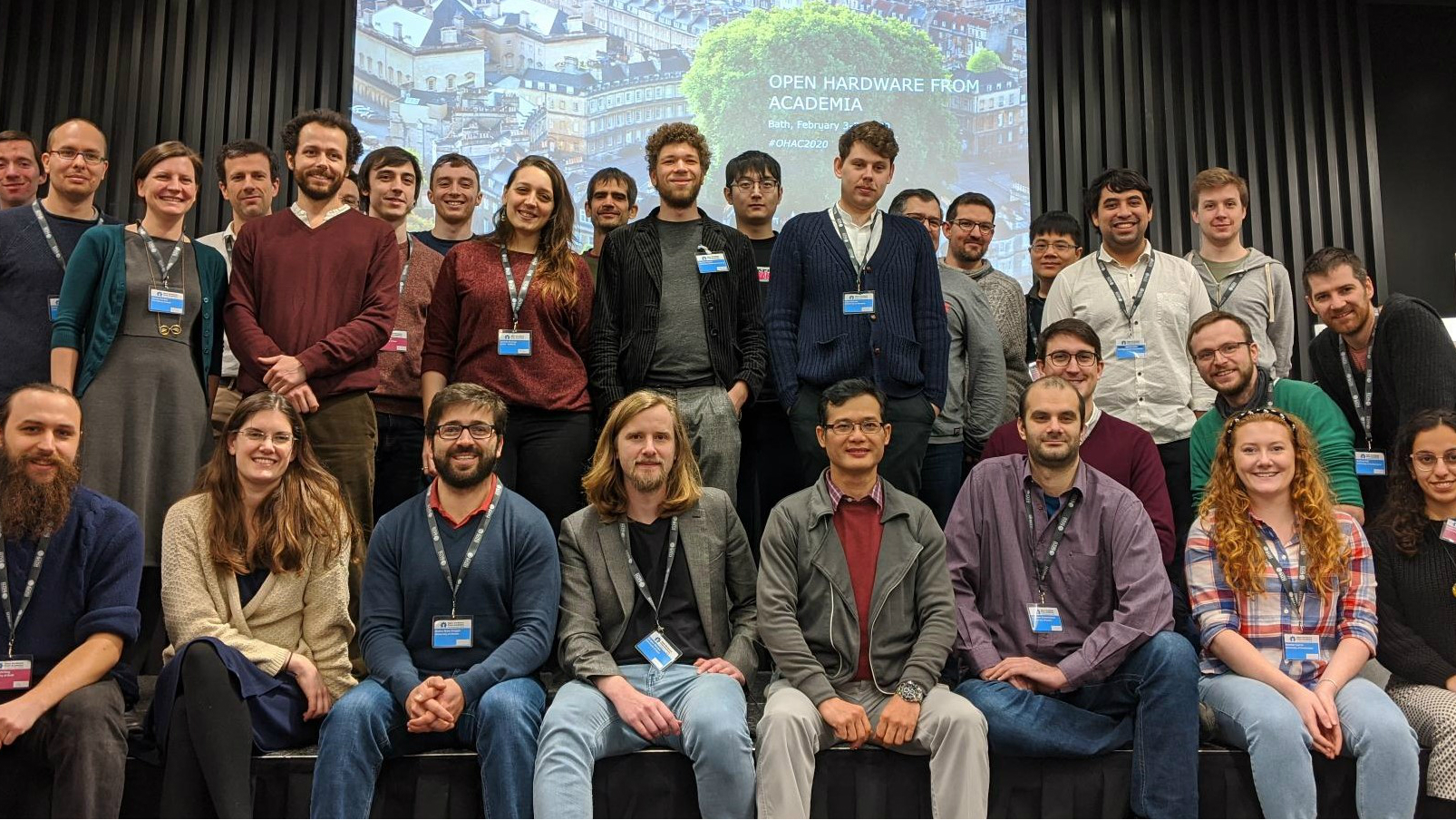Governments and funding bodies are pushing for the results of publicly funded academic research to be open, from open access publications to open data. Some academics are pushing for this to be extended to hardware, so that publicly funded hardware designs are made available to the wider public that fund them.
Earlier this month the University of Bath hosted “Open Hardware from Academia”, an international workshop looking at open source hardware developed within academic institutes.
The event brought together academics from all career stages alongside legal and industry experts to discuss topics in an inclusive environment.
The organisers, led by Dr Julian Stirling from the Department of Physics, ran the workshop as a ’collaborative incubator’, with panel discussions to set the scene, and the majority of time in collaborative group discussion on topics identified by the participants. Running the workshop with this flexible, interactive structure was designed to encourage everyone to participate. This is in contrast to many meetings where the days are packed with talks, and only a few senior attendees ask questions. The incubator formed part of Reimagining Recruitment, a larger University of Bath research project studying the experiences of early career academics, funded by EPSRC.
During the event, a number of topics were discussed. From the legal aspects of how we can share hardware designs openly while still allowing companies to commercialise the results and build on the innovations, to the open source toolchain needed to make open source designs accessible to all. These discussions are ongoing and will form the basis for future collaborations. The workshop also had panel discussions to focus some of the discussion with participation from:
Javier Serrano, leader of the hardware and timing group at CERN
Adrian Bowyer MBE, founder of the RepRap project
Jenny Molloy, Shuttleworth fellow at the University of Cambridge
Alison Parker, Woodrow Wilson International Center for Scholars
Andrew Katz, Moorcrofts Corporate Law
David Beet, Commercialisation Officer, University of Bath
The workshop was organised by the Bath Open Source Hardware group, including Dr Julian Stirling, Dr Joel Collins, and Dr Richard Bowman from Physics, and Dr Jérémy Bonvoisin, Rafaella Antoniou and Dr Pen-Yuan Hsing from Mechanical Engineering.

